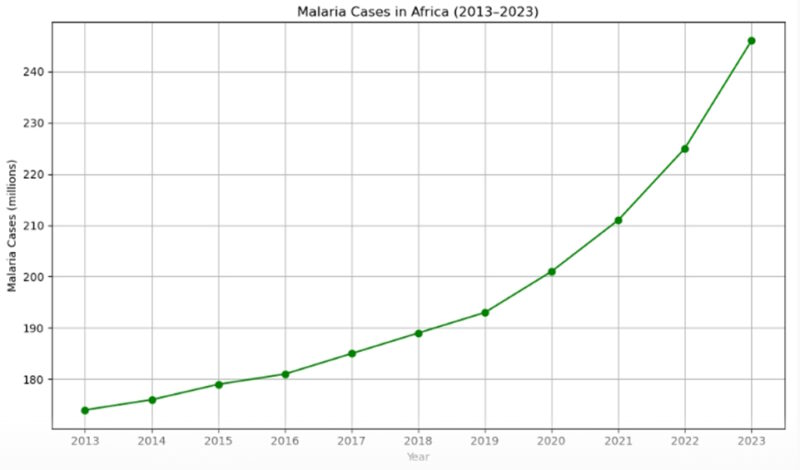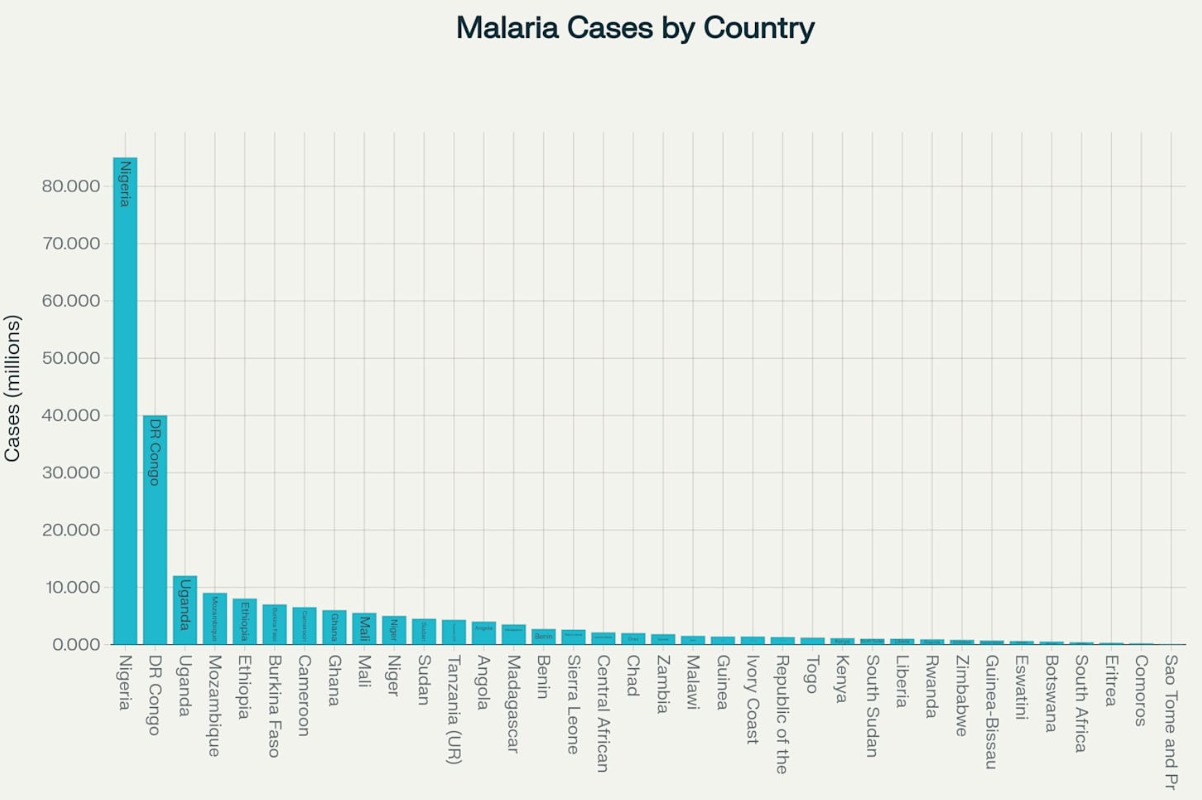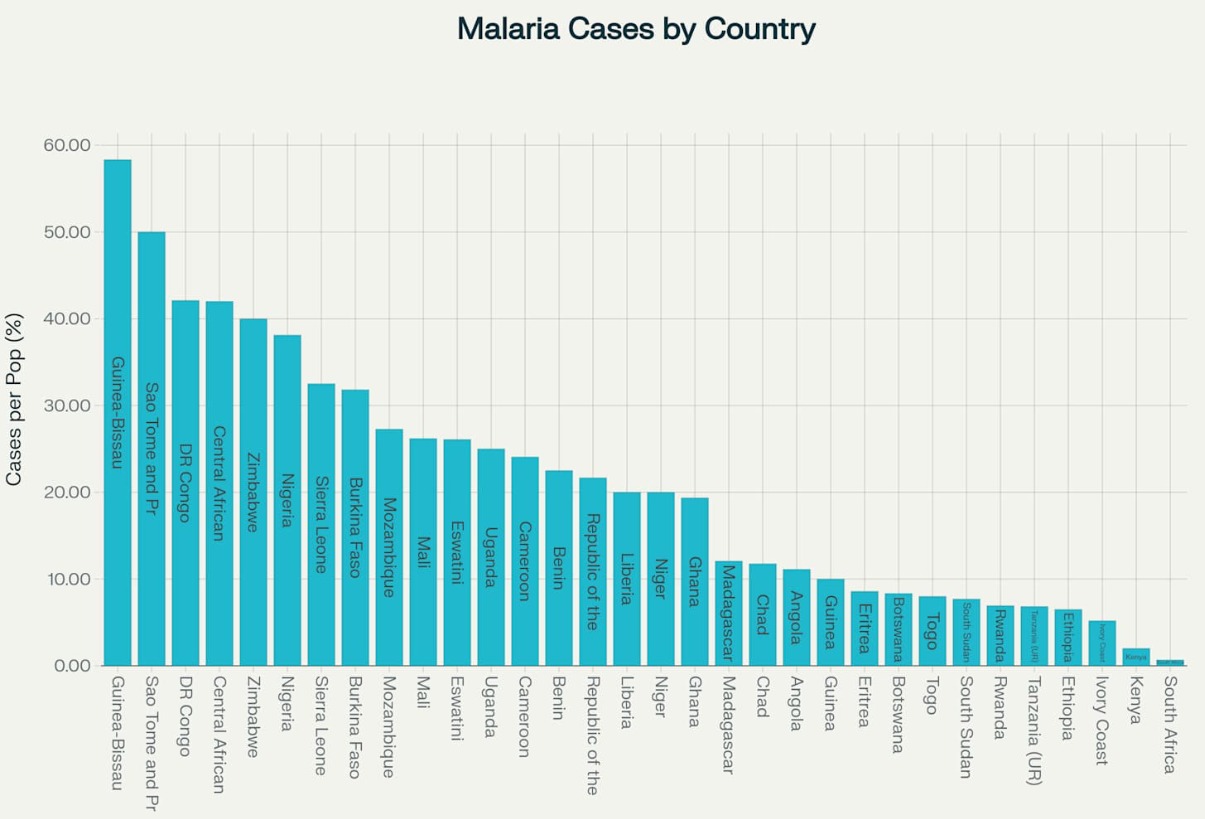
Malaria is present in around a hundred countries, mainly in the poor tropical areas of Africa, Asia and Latin America. The African region is by far the most affected, with 94% of malaria cases recorded in this region (2023). Epidemics can occur when populations move to highly endemic areas. Travellers to these regions can also be affected.
In 2023, 246 millions cases of malaria (94%) and 569,000 deaths from the disease (95%) were recorded in the African Region. Children under the age of five accounted for some 76% of malaria deaths in the Region. More than half of these deaths occurred in four countries : Nigeria (30.9%), the Democratic Republic of Congo (11.3%), Niger (5.9%) and the United Republic of Tanzania (4.3%).
Over the last 10 years, the number of malaria cases has been rising steadily, and as can be seen from the graph below, the number of cases has risen from 174 million in 2013 to 246 million in 2023.
According to recent reports from WHO and partner organizations, the increase in malaria cases in Africa in recent years can be attributed to several interrelated factors: increasing resistance (mosquitoes resistant to insecticides, the parasite resistant to treatment), climate change (rising temperatures, changes in rainfall patterns), reduced funding (the partial freeze on international aid, particularly from the USA), logistical and health challenges (limited access to healthcare, fragile health systems), uncontrolled population growth and urbanization, and insufficient deployment of innovations.
Here is a figure presenting, for the most recent year with comprehensive data (2023), the estimated number of malaria cases per African country and the ratio of malaria cases to population (expressed as a percentage). These figures show where malaria burden is highest relative to population


As shown in the graph above, countries like São Tomé and Príncipe, Equatorial Guinea, Gabon, and Gambia have the highest malaria case-to-population ratios, indicating a very high malaria burden relative to their population size. In absolute numbers, Nigeria and the Democratic Republic of the Congo have the highest case counts, but their ratios are lower due to larger populations.
According to official data from the World Health Organization (WHO), four African countries are currently certified free of local malaria transmission. These are Mauritius (certified in 1973), Losotho (certified in 2012), Algeria (certified in 2019) and Cape Verde (certified in 2024). These 4 countries have interrupted local malaria transmission for at least three consecutive years, and have been officially recognized by the WHO following a rigorous certification process.
